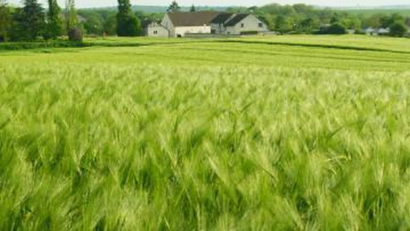The Benefits of Inoculation
COVID in Flu Season

Corina Cristea, 16.10.2020, 13:26
The cold season is always flu season, bringing to the foreground the idea of vaccines. Right now this discussion is at the forefront, in the context of the pandemic. The concern is growing, with more and more questions from the public towards experts. Some of them are related to how the COVID infection superimposes with a regular flu virus, and how it influences its spread. Speaking on Radio Romania, professor Doina Azoicai, head of the Romanian Epidemiology Society, clarified a salient point. In the southern hemisphere, where the cold season is about to end, forms of the flu were not that dangerous. The question we asked her was if this was the case for the northern hemisphere:
“We are going to have many ordinary acute respiratory infections. We can expect a variety of viruses to circulate, affecting the breathing apparatus, which come back every year, but in addition we expect to have the flu as well. Interestingly, the flu was not so bad in the southern hemisphere. This aspect may have several explanations. Either the two viruses are in a competition, and the stronger, the younger wins, even though the flu virus has another structure each year, different, but only a different strand than the year before. Or it is simply that the population has adopted measures for limiting the spread of respiratory infections, avoiding crowding, wearing masks, and that may limit the spread of pathogens. That does not mean that we are flu free. In the southern hemisphere the AH1N1 virus has been prevalent, even though at lower levels, over the B type virus, as the case was last year.”
Of the flu viruses, A and B types are quite capable of creating epidemics, even pandemics, as they change strands from one year to the next. The WHO establishes what strands will be used the upcoming year, with a program for prediction and analysis of circulating viruses.
Flu viruses and coronaviruses are different families. We asked Adrian Marinescu, a physician with the Matei Bals Institute in Bucharest, if the two could combine to produce another kind of virus. He specified that people who get COVID and the flu at the same time can develop worse conditions, and at the same time that a flu vaccine does not defend from COVID:
“There is no proof that there is a connection, flu viruses are one thing, coronaviruses are another. If we get a flu shot, we are better, we dont get the flu. It is helpful, but there is no connection. The novel coronavirus is undertaking now minor changes, and even major mutations. For instance, right now it is known that in the US and Europe the virus is not more aggressive, but that it spreads faster. This is the reason for which we are talking about the second wave, and the way in which infections occur now.”
A lower number of flu cases means a lower level of pressure on the health system, faced with a pandemic that no one knows when it ends, especially since we dont yet have a vaccine. However, there are flu vaccines, and they are the best measure of prevention. Virgil Musta is the head of the Infectious Disease Hospital in Timisoara:
“In order to prevent the spread of infections, no matter what they are, we have vaccines, which work best. Barring that, there are hygiene measures, washing hands, social distancing, and wearing a mask, which are essential. Healthy eating helps immunity. Stress also influences immunity. Which is why people should try to do some stress management, either with medication or by consulting their physician. We have also noted that depressed people, or people suffering from anxiety, can get worse if they catch the disease. Vitamins and minerals may also help prepare the body deal with any infection, such as vitamins A and D, as well as zinc and selenium. Also, resting well is essential, a well rested body is much more resilient. We should manage day to day activity in order to manage the struggle between pathogens and immunity.”






























